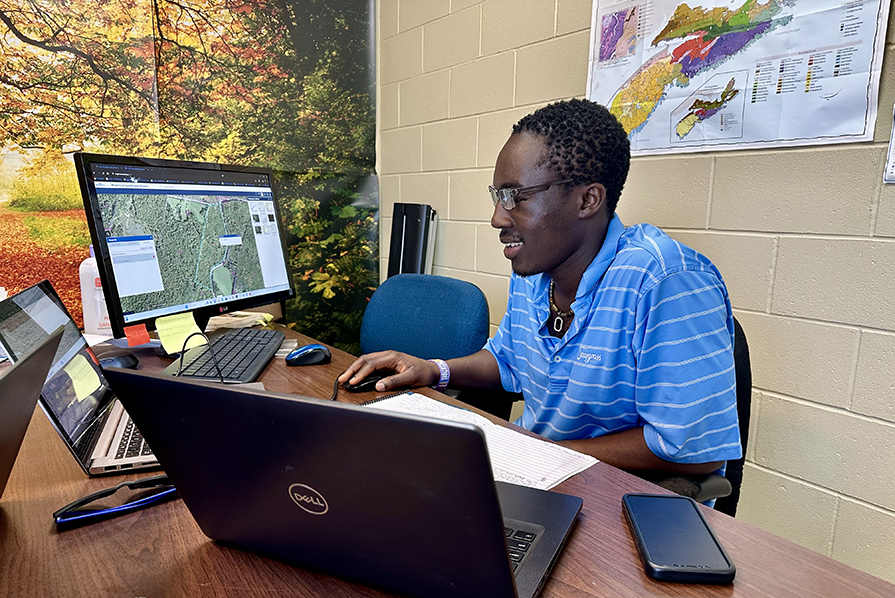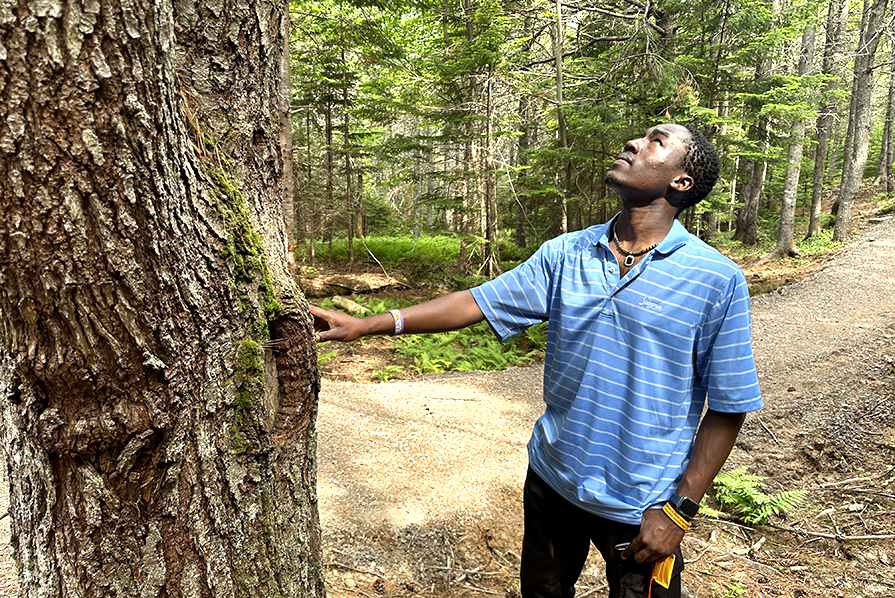Mapping a future in forestry

Date: Jul. 04, 2024
After receiving a Bachelor of Science in Applied Geophysics from Covenant University in Nigeria, Victor Opadele was struggling to find work in the oil and gas sector, so he decided to come to Canada, where his brothers were already living, to explore a new career path. He found the Natural Resources Environmental Technology (NRET) program at NSCC’s Strait Area Campus and is now planning for a career in forestry in Nova Scotia.
Victor will be entering the second year of the program in September and he’s currently learning new skills in mapping and geographic information systems (GIS) through a summer work term with the Nova Scotia Landowners and Forest Fibre Producers Association (NSLFFPA).
“My dream job is basically to be a forest technician,” says Victor. “It takes a bit of getting used to the weather in Nova Scotia, but other than that, everything is very good.”
The value of hands-on learning
By stepping out of the classroom and into real-world environments, students like Victor gain practical experience that deepens their understanding of their chosen fields. Work terms also provide an opportunity for students to develop essential workplace skills and build their professional networks.
Victor believes the experience he’s gaining will be useful in the second year of his diploma program and in his future career. He’s enjoying the opportunity to participate in self-guided learning modules around ArcGIS Pro as part the position, which his class will be covering in the coming year.
He’s had the opportunity to work directly with Aaron Burton, a recent graduate of the NRET program, who’s working for a second summer with the Cape Breton Privateland Partnership (CBPP), NSLFFPA’s partner organization dedicated to services on Cape Breton. Victor says that by working with Aaron, he’s gotten more field experience than he might have if he were the only co-op student on site, because the pair can travel to do field work together.
“I believe that I’m helping the goals of the organization,” says Victor. “Planning in ArcGIS Pro has been my favourite thing I’ve worked on so far, but I’m also enjoying the fieldwork and I had the opportunity to help with a woodlands conference.”

The impact of co-operative education
Peter Burchill supervises Victor’s work term at NSLFFPA at says that both the students and the organization benefit from the summer positions.
“We have a lot of administrative work and field checks that need to be done and the summer students help us to fill those gaps in our busy season,” explains Peter. “We administer silviculture treatments like planting and thinning, which means we have to inspect all of our sites before we connect private woodlot owners with contractors.”
In addition to field work, Peter finds that students like Victor and Aaron bring a lot of value to the technology side of NSLFFPA’s forestry work. “It’s very easy to give the computer driven tasks to our student team. They pick it up quickly and often they will run with it, instead of it being a barrier,” says Peter.
About the Nova Scotia Landowners and Forest Fibre Producers Association
The NSLFFPA is an independent association which provides forest management, certification and extension services for private woodlot owners in Eastern Nova Scotia. They advocate for the sustainable management of private forest resources and believe that appropriate forest management can contribute to both the ecology and economy of the region.
